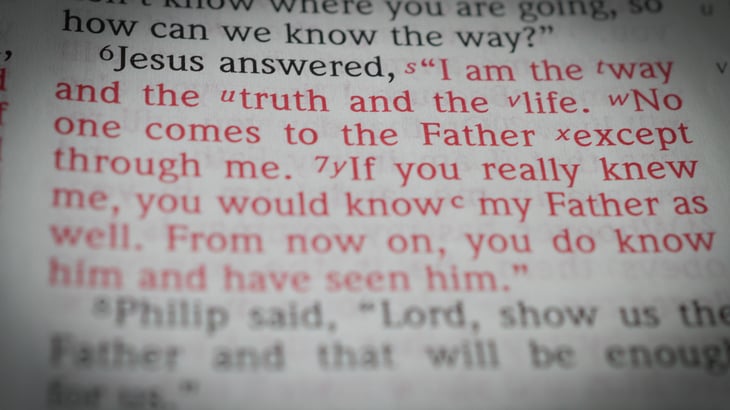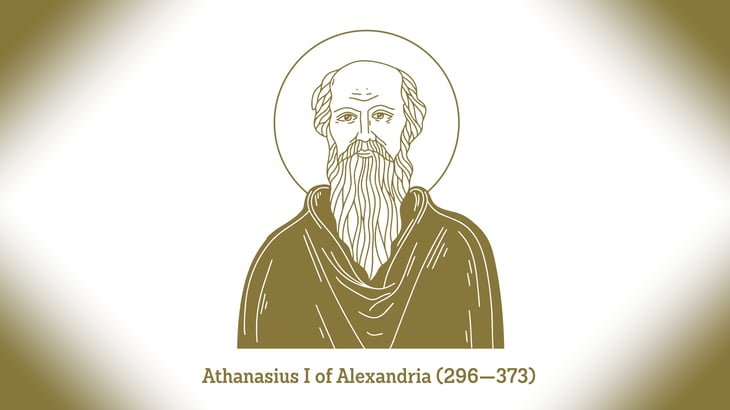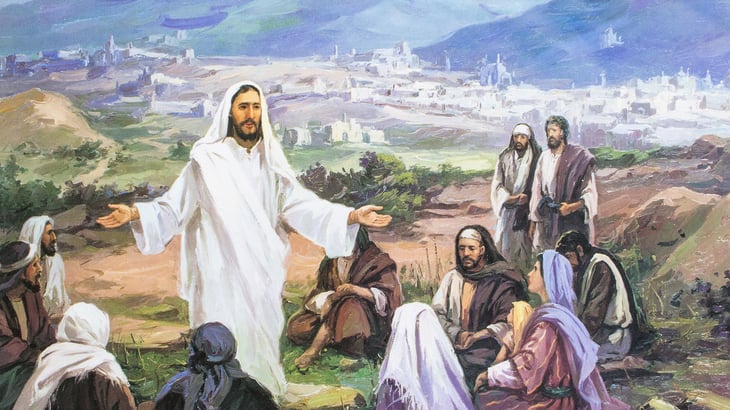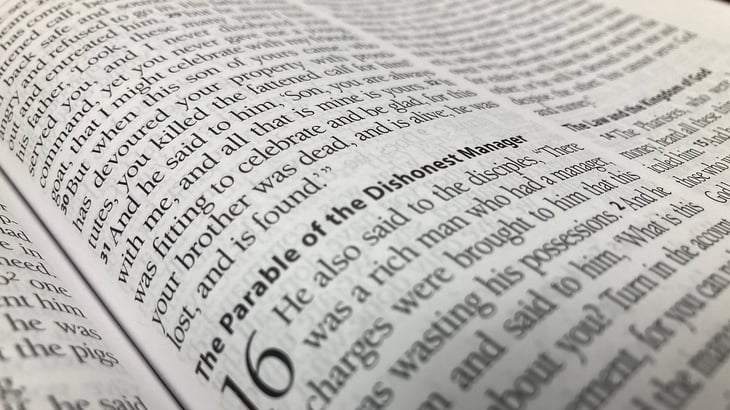Digging Deeper into Scripture: John 14:1–14
Having just passed my fiftieth birthday, I am well into adulthood. I noticed several years ago that I not only look but also behave like my father. My hands are an excellent example. The shape of my fingers resembles his, as do my fingernails and wrinkles. Even more interesting is that when driving, I place my hands on the steering wheel in the same places he did. This happened naturally since he was deceased before I learned to drive. There are a myriad of other examples in both appearance and behavior. The point is that beyond my birth certificate, there is evidence that I am my father’s son.
Digging Deeper into Scripture: Matthew 17:1–9
An interesting phenomenon takes place at Halloween. Mom and Dad get dressed up in costume in anticipation of attending a party or taking the children trick-or-treating. Oftentimes their costumes include a mask or face paint. When the children first see Mom or Dad in the mask or face paint, they are often afraid, especially the younger ones. Mom and Dad have changed. They sound the same, and their height and general stature are unchanged. Yet the face, the point of connection between parent and child, has changed. Children cry out and cannot be consoled until Mom and Dad remove the mask and wash off the paint. At some point in growing up, children can suspend what appears to be reality, recognizing that it is still Mom and Dad under the disguise.
Athanasius on John 10:30
Given the high status the Gospel of John gives to Jesus, it is not surprising that certain passages from this Gospel would play important roles when questions arose concerning Jesus’ precise relation to the one God of Israel. In an adapted excerpt from the second volume in the Concordia Commentary series on the Gospel of John, read about the classic interpretation to John 10:30.
Digging Deeper into Scripture: James 5:7–11
I am dating myself to share that I was five years old when the movie Star Wars came out. Mind you, this was 1977. At this point, there was only Star Wars without the context of The Empire Strikes Back and Return of the Jedi, let alone the prequels or the sequels. We called the movie Star Wars, not Episode IV. If you were alive then, you recall the impact the movie had on the public. It was a phenomenon for both adults and children, men and women, boys and girls. Perhaps the reason for the movie’s great success was its ability to capture the imagination of even those not enchanted by science-fiction. Star Wars was also an exercise in patience. We knew the next movie wouldn’t arrive until 1980. We simply had to wait.
Digging Deeper into Scripture: Luke 18:1–8
Luke 18:1–8 is a parable that the Lord uses to encourage His disciples to pray persistently.
Digging Deeper into Scripture: Luke 16:1–15
When I teach on the Seventh Commandment, “You shall not steal” (Exodus 20:15), I challenge students to come up with examples of stealing beyond theft, armed robbery, burglary, and the like. I am pleased when they can come up with less obvious examples like tax evasion, falsifying time cards, being late, or breaking a promise.
Digging Deeper into Scripture: Luke 12:22–34
Anxiety can get the best of us, but even amidst our struggles, God promises to provide for all our needs. Read what Pastor Phil Rigdon has to say about the anxiety found in Luke 12:22–34.
Digging Deeper into Scripture: Luke 10:25–37
Discover salvation and sin in the parable of the Good Samaritan with Pastor Phil Rigdon’s insight.
Digging Deeper into Scripture: John 8:48–59
Explore Christ’s great confession, “Before Abraham was, I am” (John 8:58), to the Pharisees and the highlights of John’s Greek with Rev. Phil Rigdon.
Digging Deeper into Scripture: Revelation 21:1–7
Exploring the original Greek of Revelation 21, Pastor Rigdon shows us Christ’s words on the new heaven and the new earth promised to us in the last days.




















